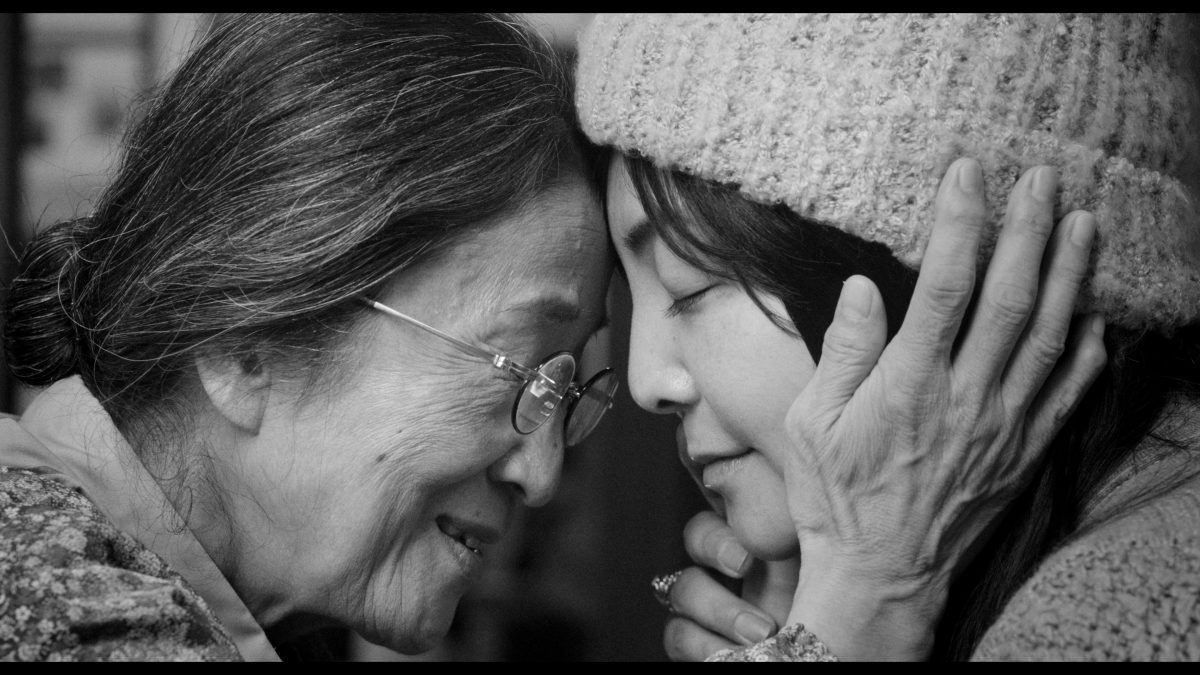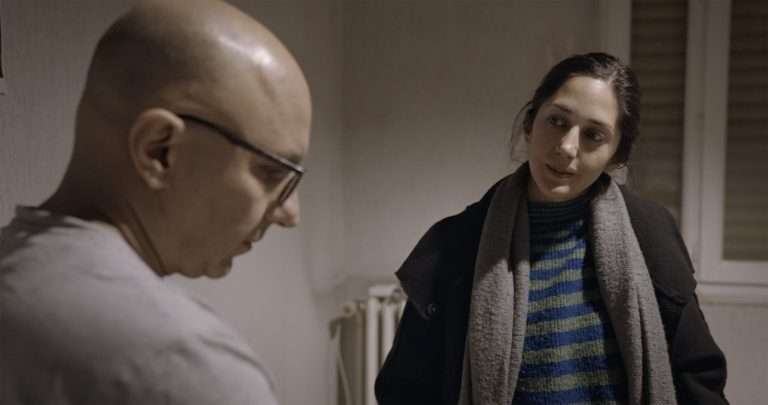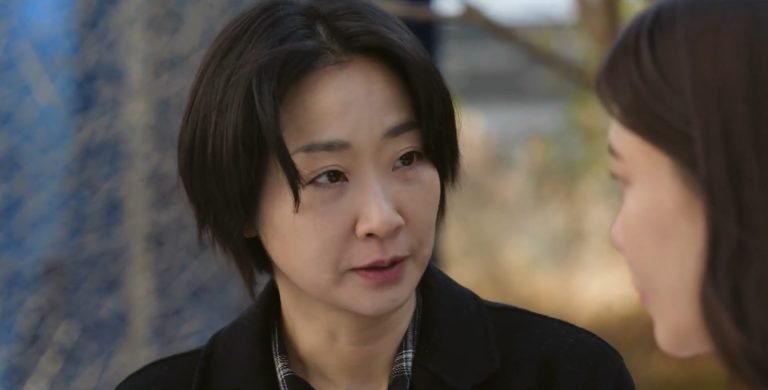Mayumi Yoshida’s “Akashi” (2025) follows a Vancouver-based woman’s journey back to her ancestral home in Japan. She arrives there almost a decade after she left to follow her dreams. The return feels not only like a homecoming but also as a chance to rediscover parts of her past self, which included her unrequited feelings for her old flame. That’s why the film falls in the vein of Celine Song’s “Past Lives,” as it tries to capture the essence of that lingering desire, which holds a certain nostalgic charm but also a bittersweet tinge. No matter how badly you try holding on to that lost magic, it may always be out of reach.
Yoshida attempts to capture a similar bittersweet undertone in this film, which she wrote and directed, inspired by experiences from her own life. She also stars as the protagonist, Kana, who arrives in Japan for her grandmother’s (Hana Kino) funeral. Years ago, her grandmother told her a family secret that drastically changed her perception of their marriage and of the institution in general. Still, years later, upon her return, she finds herself in the same trap, being expected to be married with kids. It’s as if the world has moved on and allowed women more autonomy. But only in theory, since the practices are still steeped in age-old misogyny.
Kana finds herself in a multigenerational gathering, where the older generation doesn’t hold on to its critique of her personal or professional prospects, but rarely appreciates her. That does not necessarily raise dramatic stakes in Yoshida’s film, nor does it become the crux of its narrative.
These cultural details often appear simply as observations to give us a sense of the place. Yoshida also includes some everyday snippets, almost like the pillow shots from Ozu’s films, to set an overall comforting tone, which gives insights into Kana’s emotional distance from her family, whether because she spent a long time away from them or they held on to some cultural notions even if she moved on from them.
In one way or another, Yoshida’s film feels indebted to Ozu’s style and approach, even if she is not directly inspired by his work. Her cinematographer, Jaryl Lim, shoots a major chunk of this film in black and white, keeping the camera still unless movement is absolutely necessary. While the blocking choices are different, it achieves a similar sense of calm, primarily from its interior shots with the warm, pillowy presence of light.
Otherwise, the camerawork is strikingly intimate when it captures different stages of romance. The film uses near-blinding darkness to show two lovers being vulnerable and confronting the state of their relationship. At other times, it uses reflections or glowing, neon lights to show its doomed lovers, which makes them seem like they are part of a Wong Kar-Wai film.

These stylistic choices turn Yoshida’s film into a cosy affair where a woman is trying to find a connection that she seemingly struggles with while in Canada. Her journey as a struggling ethnically-East Asian artist from a Western nation feels similar to Awkwafina’s character in Lulu Wang’s “The Farewell.”
Even here, we see the protagonist travelling to her ancestral place for a family emergency. Yet, it partially serves as a way to distract herself from her everyday artistic struggles, which makes the trip a quest for identity. Unlike Wang’s film, “Akashi” doesn’t dive into the depths of her grief. Instead, Yoshida focuses on the interconnectedness of these stories based on love and longing.
Yoshida sheds light on everyday misogyny while observing the effect of societal norms on everyone’s behavior. Still, her film is not as critical as it is sentimental. It assesses the nature of romance in the past and the present, to understand what drifts lovers apart and what keeps them holding on to their mutual devotion. Yoshida’s film, although filtered through a personal lens, leads one to wonder if we have complicated things beyond a certain point, where intimacy or emotional warmth has become unattainable, as compared to the past, where love endured despite a long passage of time or distance.
There’s a flipside to this romanticized notion, since autonomy was not remotely attainable to women in the past. Yoshida’s film, however, doesn’t remain limited to these binaries. In fact, its premise is based on Kana’s grandmother defying her expectations about her arranged marriage. The film shines, not through these insights, but through Yoshida’s gentle direction in some everyday moments, when people are merely sharing a moment together.
It’s in the simple moments, like when her father waits for her to go to sleep by watching TV in silence, so he can share a moment or two with her once she returns home — or when her old lover opens up about his fickle emotional state in the cold of the night, maybe because that’s the only time he feels most comfortable doing so.
Despite those occasional moments of emotional weight, “Akashi” leaves you wanting more. It rarely rises above its premise and often reveals much of what it wants to say through a bunch of expository dialogue. So, the in-between moments often feel dry and hollow, leaving the film farther from the profundity it could have achieved.



![True Things [2022]: Movie Review & Ending, Explained](https://79468c92.delivery.rocketcdn.me/wp-content/uploads/2022/09/True-Things-2021-768x421.jpeg)

![I’m Your Man [2021] Review – Therapeutic robot-romance wisely investigates modern relationships](https://79468c92.delivery.rocketcdn.me/wp-content/uploads/2021/09/Im-Your-Man-Movie-Review-768x512.jpg)

![The Hound of The Baskervilles [1959] Review – The weirdest Sherlock Holmes Adaptation is also the best](https://79468c92.delivery.rocketcdn.me/wp-content/uploads/2021/05/The-Hound-of-the-Baskervilles-1959-highonfilms-2-768x443.jpg)
